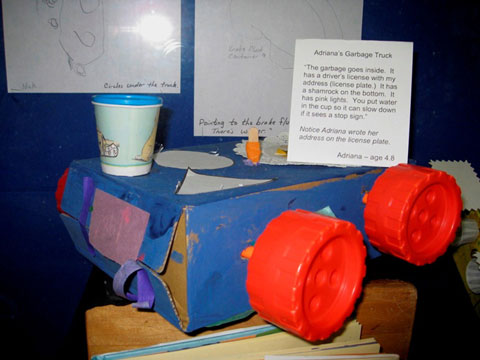Most of the Illinois Early Learning Benchmarks can be met when young children are involved in project work. Projects are like good stories. They have a beginning, middle, and end. Projects can last from a week to several months, depending on the topic, the children’s interest, and the resources available. Here are some tips to use during the last phase of a project to help enrich what the children have learned.
Develop a plan for concluding the study.
- Revisit the topic web and original list of questions with the children (see The Project Approach: Phase 1—Getting Started). Which of their questions have and have not been answered? If the children have addressed most of the questions, suggest that it might be time to finish the project.
- Suggest possible closing activities: “You could invite other classes to see your displays. You could plan an Open House so your families can see your work. You could put on a play that shows what you learned.”
Invite children to discuss their research findings.
- Involve the children in talking about the predictions they made in Phase 1 about the possible answers to their questions: “Jamal, you predicted that you would find out that workers get paid with coins. How did that turn out? Oh, you found out they get paid with checks instead.”
- Ask the small groups to decide what parts of their study they think should be represented in a classroom display.
- Invite some children to pick the photographs taken during the study that best tell the story of the project. Involve the children in deciding how to display them.
- Encourage children to apply what they have learned to their dramatic play. For instance, they might turn the block area into a place they studied (restaurant, beauty parlor, pet shop).
Organize a culminating event.
- Engage the children in preparing for a final event in which they deepen their awareness of what they have learned and invite others to share in it. This event is a main part of the final phase of project work.
- Help children make invitations for their families and other classes to attend the event.
- When children prepare displays and presentations about their work, ask them to think about what their visitors would find most interesting.
- Make time for children to dictate information about the project. Give each child and each group time to draw, paint, or complete models that show what they have learned.
- Help the children decide how to share responsibility for presenting the story of the project and for explaining the displays to guests. Keep in mind that the children may need to rehearse before the presentation.


 PDF
PDF